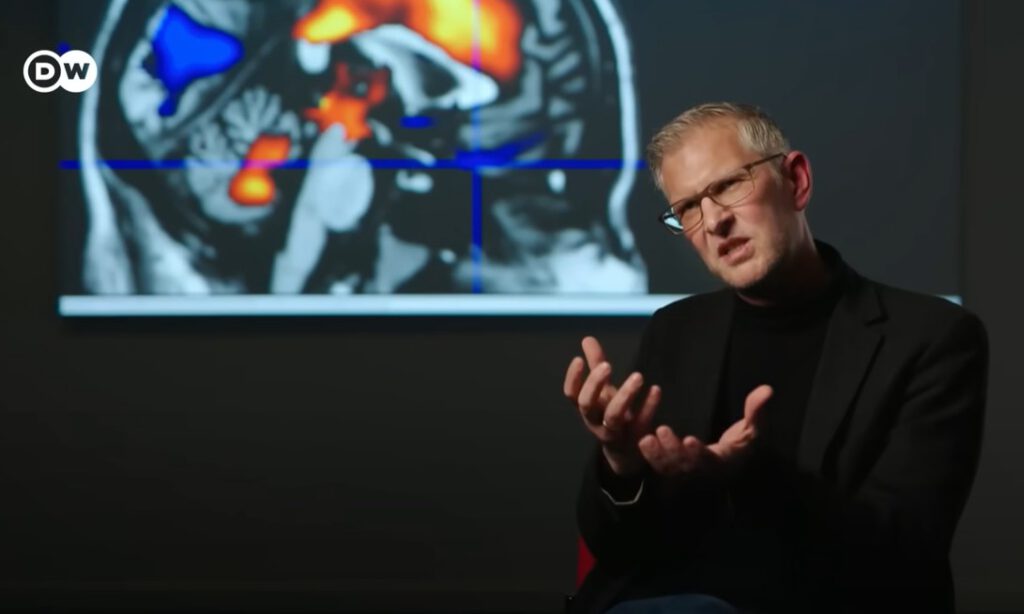Final press release available in English and German
02 April 2024 – March 31st was officially the last day of the DynaMORE project, a fact that fills consortium members with a bit of sadness and lots of joy about everything that has been accomplished. Even more so because the project resulted in many scientific publications, future collaborations, and two “mobile health” apps to improve the mental health of young adults in everyday life. DynaMORE’s success and tangible results are summarised in the final press release (EN), see also PRLog.org. The German (DE) version is also accessible on “Portal der Wirtschaft“. Have a peek!
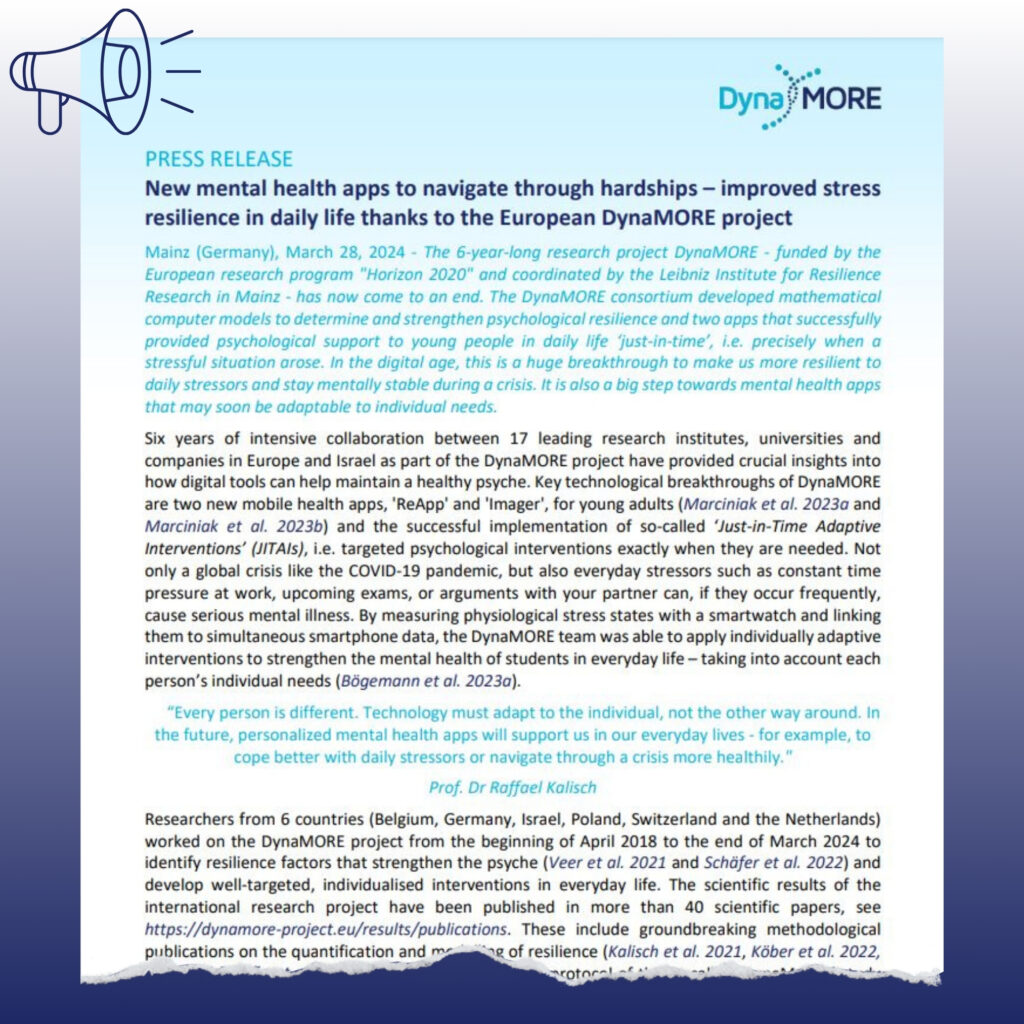
Conclusion of DynaMORE in Warsaw
11 March 2024 – The final General Assembly (GA) of DynaMORE in Warsaw, Poland, from 6-8 March 2024 was a great success – with over 20 delegates joining to discuss the scientific progress and to celebrate the consortium’s achievements in the field of stress resilience, mobile health, and “just in time” interventions via smartphone apps and smartwatches to remain mentally stable and healthy in the face of adversity and everyday stressors. We are sad to see this fabulously collaborative project end but are committed to continuing our impactful work within the resilience research community in the future! Read our Public Summary of the project’s final research period (October 2023 – March 2024).
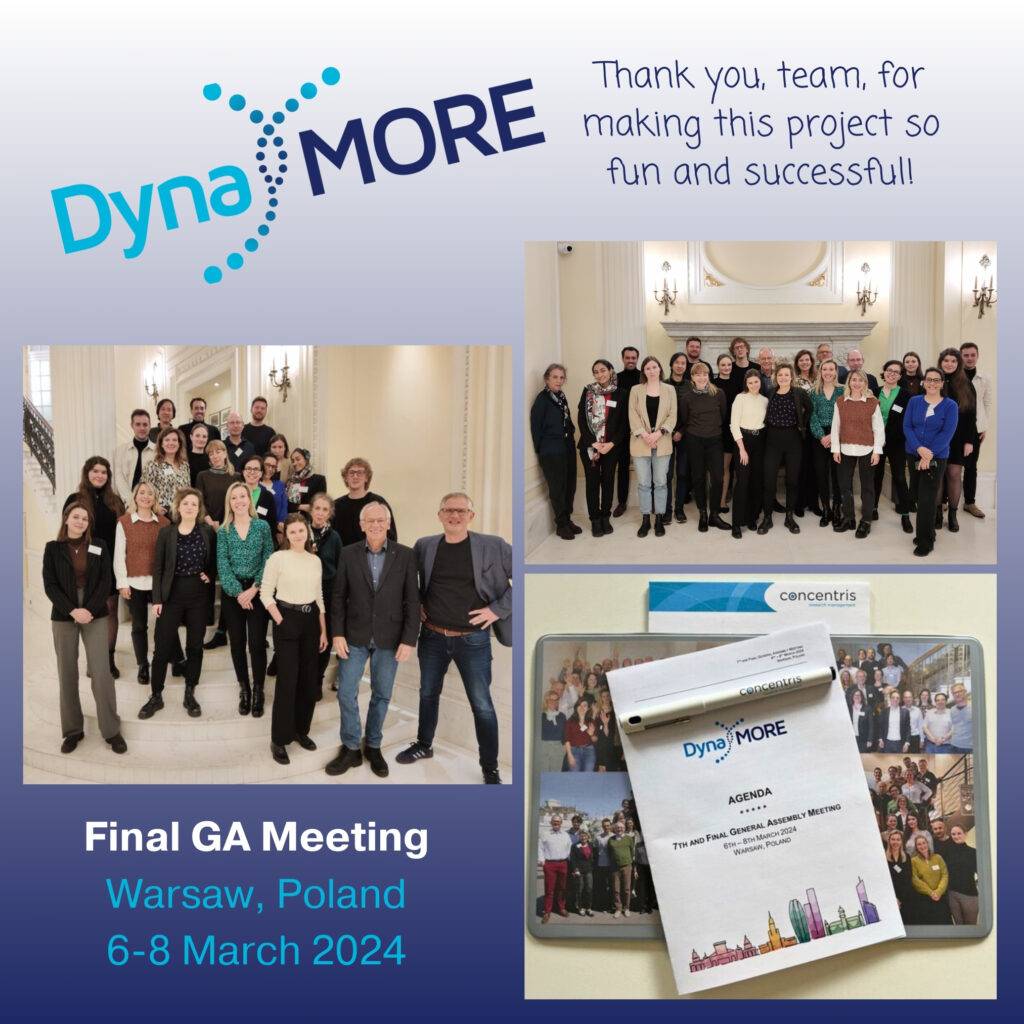
Raffael Kalisch in YouTube documentary about the secrets of inner strength
#resilience2026 – Save the date!
The 12th International Symposium on Resilience Research (#resilience2026) is taking shape and will take place again in Mainz, Germany, from 23-25 September 2026. Under the motto DIFFERENT PEOPLE, DIFFERENT CONTEXTS, the symposium will discuss resilience in collective trauma, sex and gender differences, ethical and societal aspects of resilience research, and much more. Plus: Free methods workshop “Resilience quantification in humans” and many opportunities for early-career researchers.
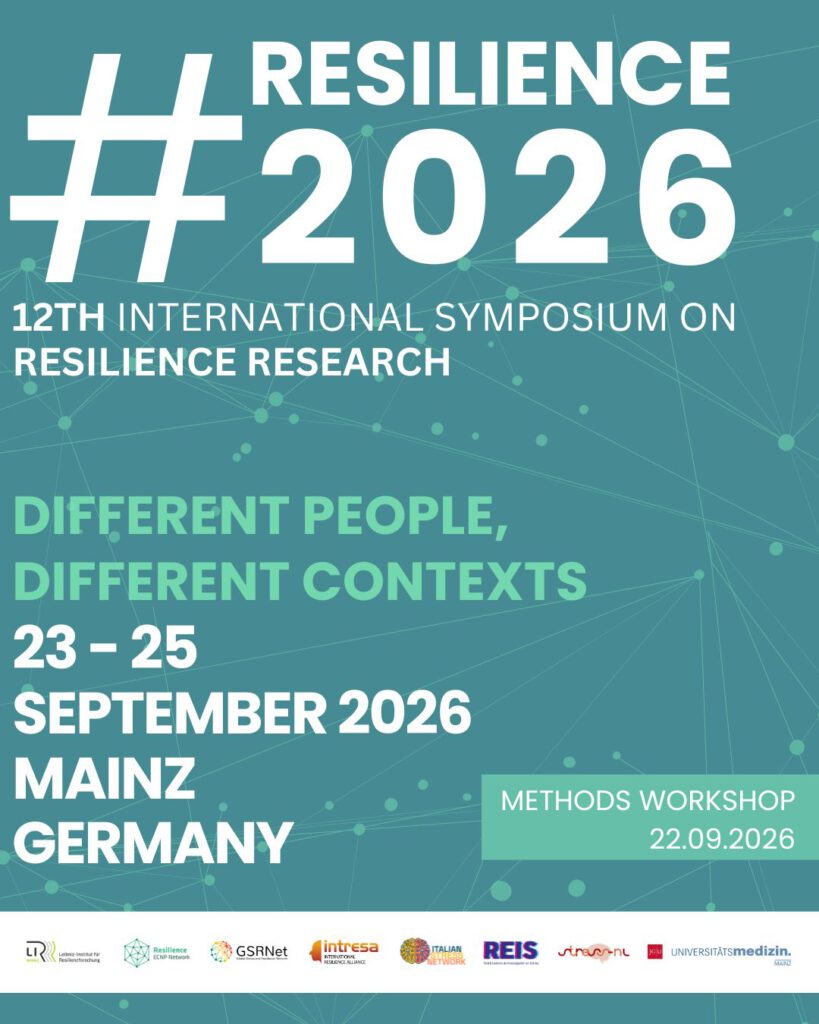
Final General Assembly in Poland
DynaMORE has reached the finish line! Nearly 6 years after the Kick-off Meeting, we celebrated the project’s completion by receiving a comprehensive summary of the consortium’s accomplishments during the Final General Assembly (GA) in Warsaw, Poland, from 6-8 March 2024. We heard about further exploitation opportunities and the sustainability plans for DynaMORE’s results and products. With both a tear and a smile, we proudly gathered one last time at a face-to-face consortium meeting before preparing the final periodic report for submission to the project’s funding agency, the European Commission.
Productive 12th Steering Committee Meeting
Lots of important discussions during the data-heavy 12th Steering Committee (SC) Meeting that took place remotely on 10 October 2023. One of the greatest things about science is that it brings people from all backgrounds together to work towards a common goal – in DynaMORE that is to understand and enhance peoples’ stress resilience in daily life. A big thank you to everyone who participated and made this meeting so productive!
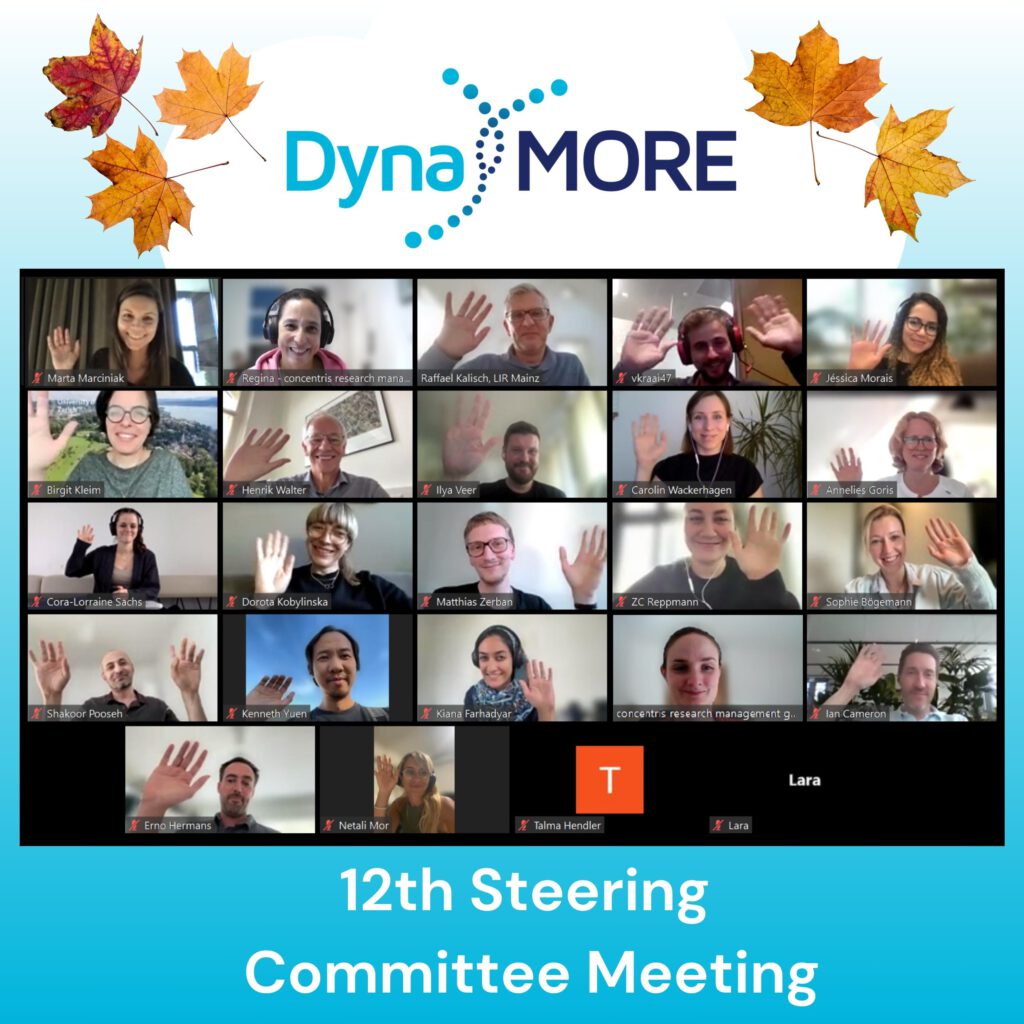
Direct links
OUR VISION
We are a multidisciplinary team of researchers with the joint goal of developing an in silico model of stress resilience. To do so, we monitor healthy at-risk individuals (18+ years old) during stressful life phases, such as transition into adulthood or higher education, training-to-street transition (police officers), or abruptly changed life situations (accident victims in recovery). Multiple longitudinal studies collect psychological, behavioural, neural, and physiological markers, and apply advanced mathematical modelling to identify key risk indicators and resilience factors. The ultimate goal is a prognostic tool for people to monitor their mental stability, and to intervene effectively before the personal „tipping point“.
WHY IT MATTERS
To this date, each year, more than half a billion people in the world are affected by anxiety, post-traumatic stress disorder, depression, or addiction. These conditions often occur as a consequence of stressors, such as traumatic events, challenging life circumstances, strenuous transition phases, or physical illness. In Europe alone, stress-related disorders are believed to cause direct and indirect economic costs of about 200 billion € every year. Despite ample research efforts into the cause of these disorders, the burden on affected individuals and society as a whole has further grown. We believe that, instead of focusing on disease, we need to understand what keeps us healthy.

